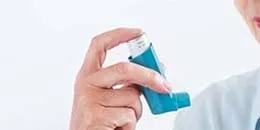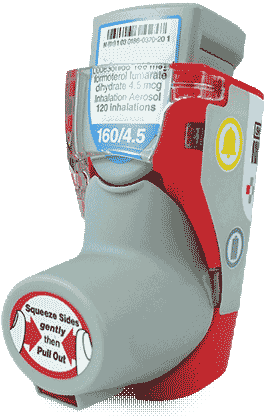Intrinsic Asthma

Asthma is a serious chronic lungs disease that can be dangerous for human’s health. It is characterized by the following symptoms: chest tightness, breath shortness, cough, wheezing.
There are two types of asthma: extrinsic (allergic) asthma and intrinsic (non-allergic) asthma.
Intrinsic and extrinsic asthma are characterized by the level of the immune system involvement. With intrinsic asthma, the IgE substance, which is produced by the immune system, is locally involved in the airways channel, while extrinsic asthma symptoms are caused by allergens and the immune system produces too much IgE, causing an asthma attack. In fact, there are many similarities between intrinsic and extrinsic asthma.
As for asthma attacks, they can happen at any time and last from a few seconds up to several days (in more serious cases).
Extrinsic and intrinsic asthma symptoms include: mucus in the airways, chest pain, rapid breath, coughing, whistling with breathing, confused breathing.
The exact cause of intrinsic asthma is not fully studied.
It is believed that the combination of genetic and environmental factors plays an important role in the development of asthma.
Muscles in the respiratory tract during an asthma attack thicken. The membranes become inflamed and cause the occurrence of thick mucus. Lungs airways become narrow. These factors lead to an asthma attack.
Intrinsic asthma is caused by non-allergic factors. Triggers of intrinsic asthma can be the following: cigarette smoke, cold air, dry air, anxiety, weather changes, wood smoke, air pollution, viruses, flavors, chemicals, excessive physical activity, some drugs, acid reflux, oscillations of hormones.
There is no cure for intrinsic asthma, but it can be controlled by taking asthma medications and avoiding triggers.
Only your doctor can prescribe the drugs you need to prevent or treat an asthma attack. The drugs for the treatment of intrinsic asthma can be divided into two groups: short-acting drugs that are used only during an attack, and long-acting drugs that are used regularly. Follow the instructions for use and doctor's advice if you use these drugs.
With intrinsic asthma, you should try to avoid triggers. It is very useful to keep a diary in which you describe the events that preceded the asthma attack, as well as your health conditions, in order to analyze the information and find out the cause of the attack.
If you have intrinsic asthma, then you should avoid: stressful situations, strong smell spirits and sharp smells, irritants in the environment, respiratory infections and contacts with sick people, excessive physical exertion.
Always receive an annual vaccine against influenza and get all important vaccinations. There are triggers that are difficult to control, for example, hormonal changes during menstruation.
Nowadays there are many medicines that help to tolerate triggers better. Many people with asthma use special breathing exercises and do yoga. It helps to improve asthma symptoms and to cope with breathing problems.
Always be attentive to the triggers if you have intrinsic asthma. Always have all necessary medications with you. If asthma symptoms worsen, then it can lead to an attack of asthma and hospitalization. If you can’t control the symptoms well, then they can become life-threatening. Remember that if you learn to control asthma and take the necessary medications properly and in time, then you can live a normal life and life with intrinsic asthma will not upset you.

